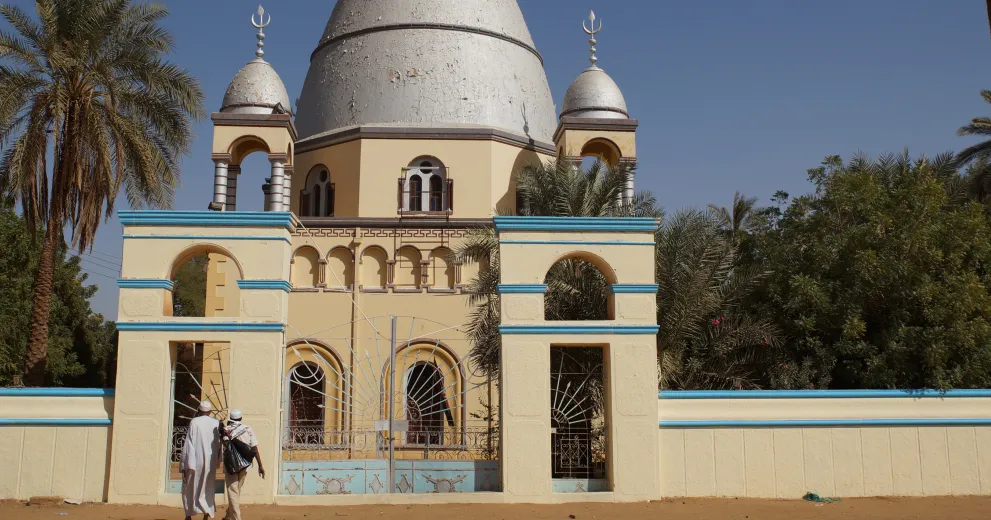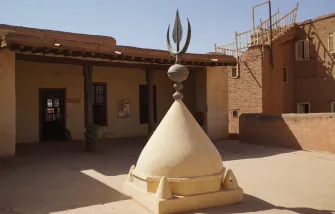Strategically located at the confluence of the Blue and the White Nile, Khartoum was founded as an Egyptian military outpost in 1821. It became the capital of Turkish-Egyptian Sudan in 1834. Read more ...

1881 to 1898 AD
Mahdiya
The ruthless exploitation of Sudan during the Turkish-Egyptian occupation in the 19th century fuelled social unrest and opposition amoung the Sudanese. In 1881, Mohamed Ahmed Ibn Abdallah, a Sudanese cleric, proclaimed himself the Mahdi. The term, literally the Guided One, refers to a messianic descendant of the Prophet whom Islam expects to appear at the end of time to redeem faith and spread justice in the world. The belief in the imminent manifestation of the Mahdi was particularly common among some mystically oriented denominations of Islam in the 19th century.
Ahmed Ibn Abdallah turned an incipient political movement into a fundamentally religious one. Many gathered around this message, forming an ad hoc army. The movement picked up pace rapidely, posing a serious threat to the British who at that time administered the officially Turco-Egyptian Sudan. The followers of the Mahdi, who called themselves Ansar, took various towns until only Khartoum and the Red Sea port of Suakin were left. In 1883, a joint British-Egyptian military expedition launched a counterattack, but failed. After this, the British decided to evacuate Sudan. At the same time, General Gordon was despatched to Khartoum to assist the Egyptian forces. He reached Khartoum and persevered until, after a long siege, the town was overrun by the Mahdists who killed Gordon and presented his head to the Mahdi in January 1885.
In June 1885, the Mahdi died of typhus. During his lifetime he had appointed three deputies. Rivalry for leadership among these claimants lasted until 1891, when Abdallahi Ibn Mohamed overcame the opposition and established himself as the Khalifa, i.e. Successor. He moved the capital from Khartoum to Omdurman and took steps to expand the Mahdist sphere of influence towards Ethiopia.
However, infighting continued and the British returned to Sudan in 1896 with Kitchener as the commander of another Anglo-Egyptian army. In 1898, Kitchener defeated the Mahdist army at Karari, north of Omdurman, and subsequently seized the town. The Khalifa fled. He died a year later in the battle of Umm Diwaykarat in Kordofan which marked the final obliteration of the Mahdiya.
The Caliphate of Omdurman had lasted for fifteen years, representing the first successful uprising of an African country against the colonial forces. The Sudanese consider the Mahdiya to be the most important period in their country's history.
